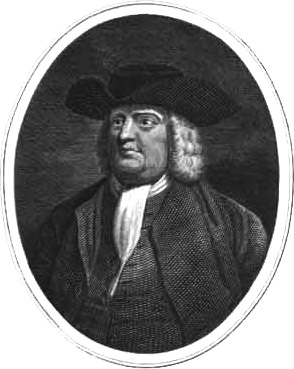Biography of William Penn

Captain Smith
William Penn was born in London, England on October 14th, 1644 to parents Admiral William Penn Sr. and Margaret Jasper. The strong religious influence on young Penn's mother is part of the reason he would later become a Quaker. After years of private school and tutoring, Penn attended Christ Church College in Oxford, with such notable figures as John Locke and Robert Spencer.
Though a good student, Penn was expelled after several religious protests. He was then sent to France, where he became friendly with King Louis XIV and continued his education. When he returned to England he joined his father's staff under the King's fleet. After some years of trying to dodge the plague and managing family estates, Penn went to hear a sermon and was pulled into the philosophy of the Quakers. Through the following years, he would constantly run into trouble for his beliefs and was often arrested for preaching on the streets of England.
After his father's death Penn had many political bouts in England. As a result, he moved to the Americas. Penn received a land grant from King Charles II to establish his own settlement, due to the political unrest Penn was causing and to repay a debt Charles owed Penn's father. William then purchased lands from the Swedes and dubbed his new capital "Philadelphia". It was after establishing himself in current day Pennsylvania that he made his famous treaty with many Indian tribes in the surrounding area. Penn is famous for his efforts in trying to establish freedom of opinion on his own estates, and seeing to the welfare of the Native Americans and African Americans. After a serious illness that impaired his memory and movement, Penn died in Ruscombe, Berkshire on July 30th, 1718. He is commonly attributed as being the founder of Pennsylvania, and a man who was well respected in the intellectual community.
 >
>